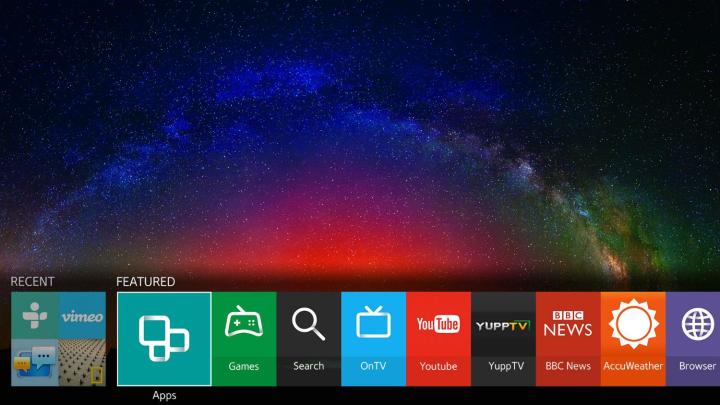
The switch to Tizen might not seem momentous in the grand scheme of things, but considering Samsung’s Smart TV platform is arguably the most comprehensive and popular on the market, making this switch is a big deal. Samsung smart TVs boast more apps than any other platform, and that means that developers everywhere are going to have to modify their apps to work on the new OS. Fortunately, it appears the process will be mostly painless, as Samsung offers a guide for adapting existing apps to work on Tizen.
As part of the switch, Samsung is abandoning the 5-tab smart TV organization it has relied on for years, adopting in its place what appears to be a ticker-based lineup of app tiles along the bottom of the screen. The design calls to mind LG’s recently-implemented WebOS platform. In fact, Samsung’s switch to a mobile device-oriented OS for its smart TV platform is itself an interesting parallel to a similar move LG made this time last year.
Designing a smart TV platform to work more like the mobile devices we use each day makes sense, as it provides a familiar, intuitive interface that makes user adoption more likely. In addition, it opens up opportunities for cross-communication between our TVs and mobile devices. For Samsung’s part, that means instant connection between its smart TVs and mobile devices using low-energy Bluetooth, with content passed between the two seamlessly. The move also gets Samsung one step closer to having its own popular platform, like Google and Apple.
Given this development, it is possible we will not see an Android TV built by Samsung, leaving Google with one less major TV manufacturing partner to help spread its take on a smart TV platform.



